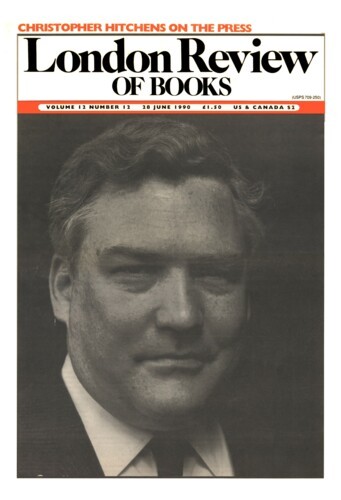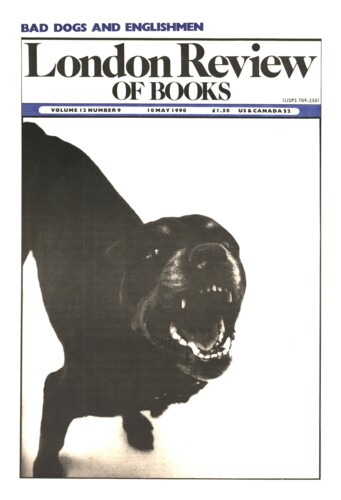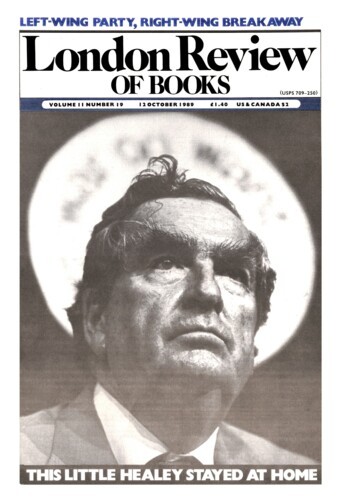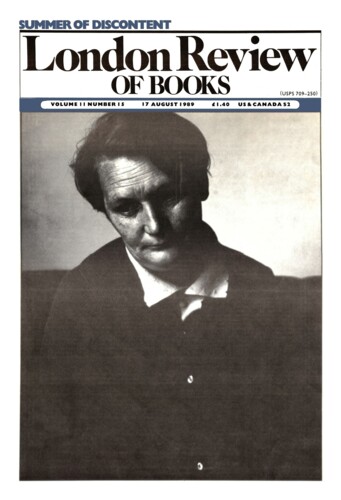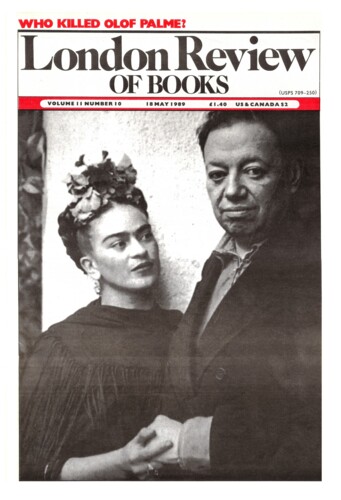Diary: Labour’s Return
Peter Clarke, 28 June 1990
It got out some time ago that in politics the medium is the message. It did not take those sharp-suited men stalking the Labour Party headquarters in Walworth Road to discover the name of a game which was already familiar to Daniel O’Connell and William Ewart Gladstone, even if the apparatchiks’ own discovery of the name of the rose had to await the advent of the cordless telephone. They now speak of having provided suitable ‘packaging’ for a new and improved ‘product’. Marketing claims of this kind inevitably encounter diverse sorts of consumer resistance. Has Labour sold its birthright for a mess of potage, or a potted message, or is the medium now the massage? When Tony Benn describes the Party’s new policy document as ‘profoundly anti-Labour as well as being anti-socialist’, not to mention ‘wildly pro-European’, it is an endorsement which many social democrats will find tempting. For those of us who supported the foundation of the SDP in the early Eighties, a question which has steadily become more insistent since the last general election can no longer be ducked: what price the Return of the Prodigal?
